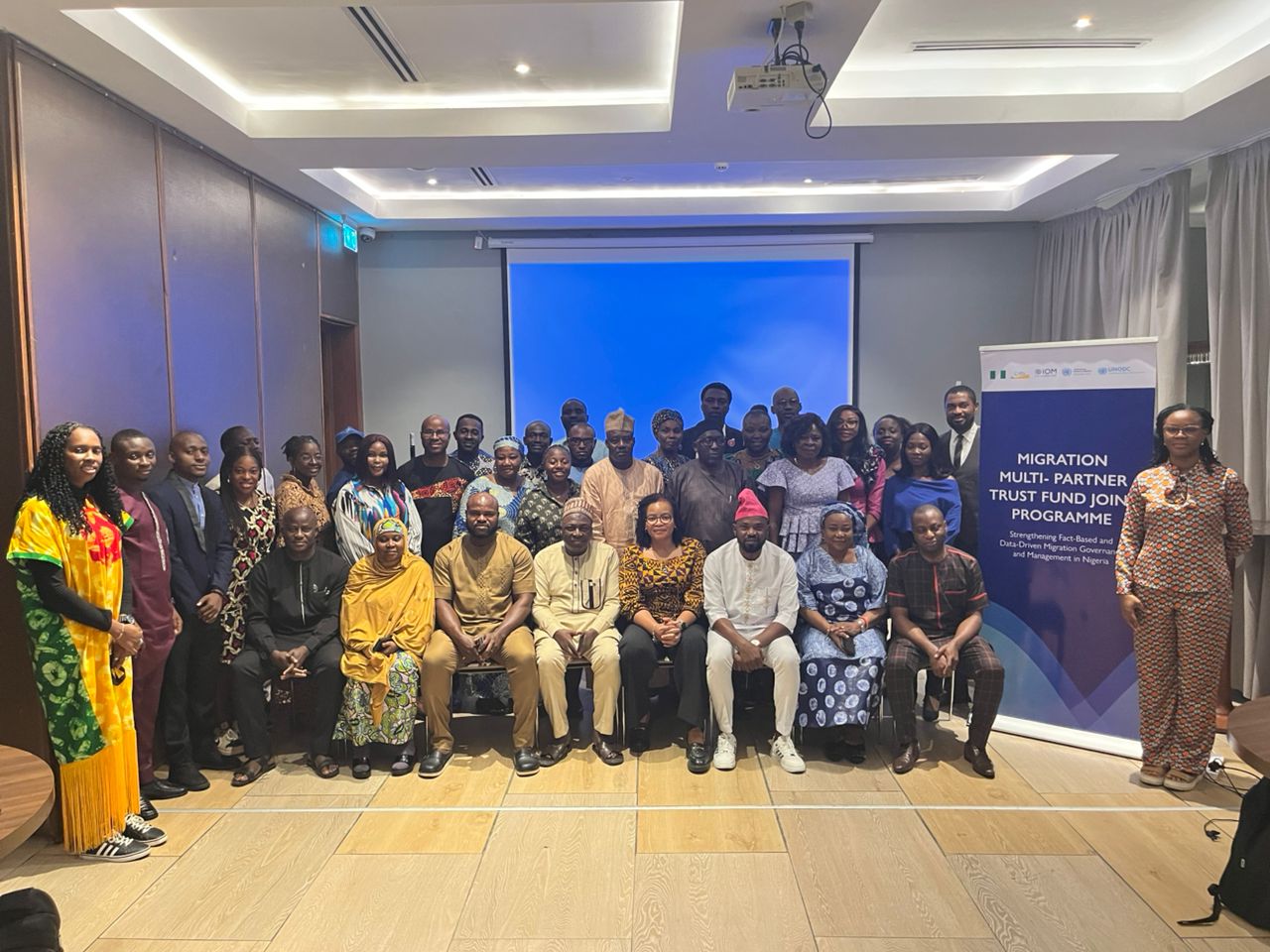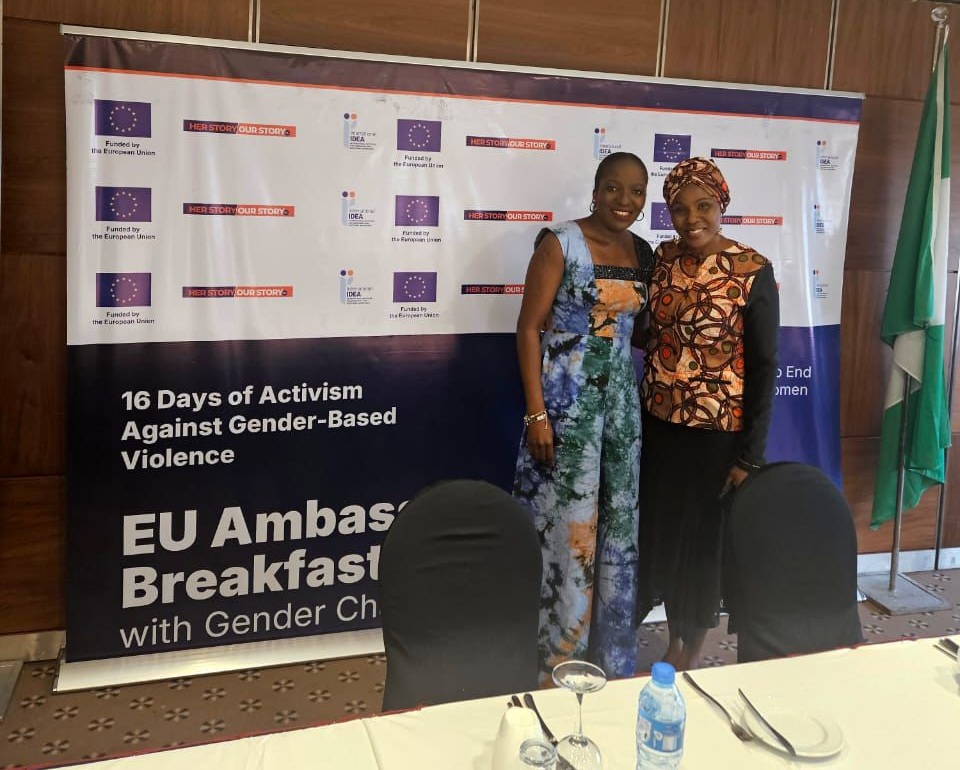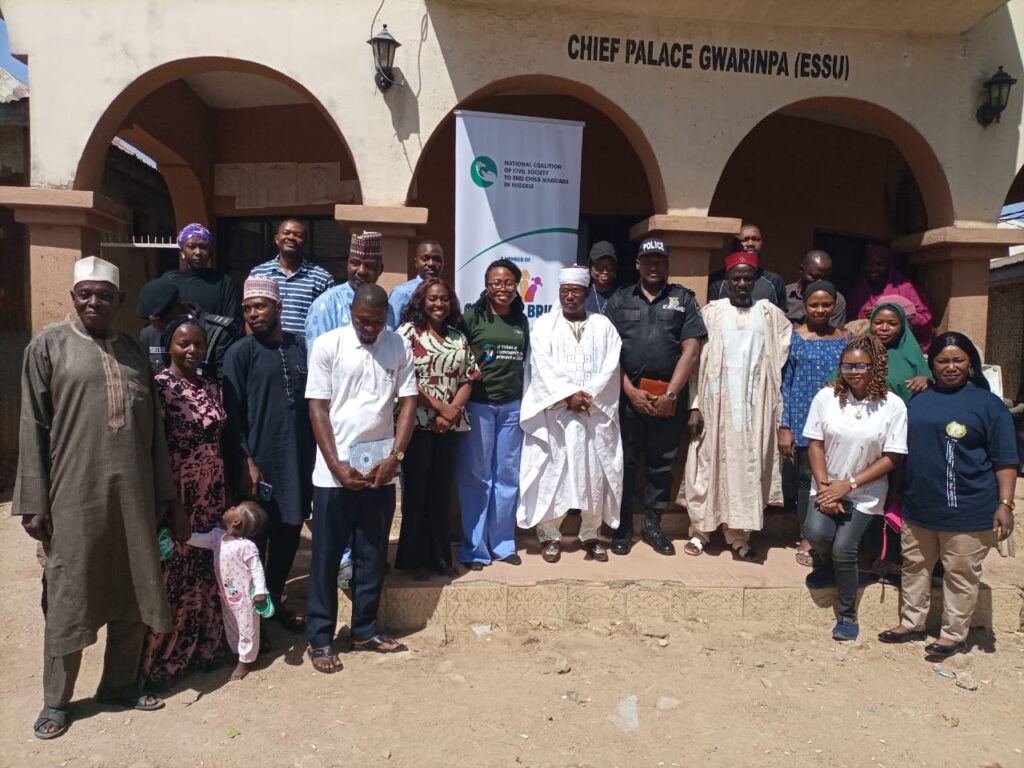
DATA CRUCIAL FOR PLANNING AND IMPLEMENTATION AS THE NATIONAL MIGRATION DATA MANAGEMENT WORKING GROUP (MDWG) MEET IN LAGOS
WOTCLEF Head was among the few Civil Society Organizations (CSOs) member organization’s head invited to the National Migration Data Management Strategy by the National Population Commission, (NPC).
The meeting which held on the 14 and 15 November, 2024 at Radisson Blu Hotel, Lagos had major Ministries Departments and Agencies, (MDAs) working on migration issues in attendance.
The meeting commenced at 9:40 A.M with an opening prayer led by Mr. Towobola Rasheed Ademola, a Director of the National Population Commission, (NPC).
This was followed by self-introductions by the representatives from various MDAs, Academia, and CSOs in attendance.
Afterwards, ground rules facilitated by Hapsatu Husaini Isiyaku were set. Below are the 5 rules for participants present in the meeting to adhere to:
- Respect for other’s opinions and foster open dialogue.
- Punctuality and adherence to the schedule.
- Silence of all devices to avoid disruptions.
- Unity of purpose
- Staying alert and engaged throughout the meeting.
REMARKS FROM INTERNATIONAL ORGANISATION ON MIGRATION, MINISTRIES DEPARTMENTS AND AGENCIES (MDAs).
Remarks opened with Hajiya Uwani who is in charge of migration data in the National Population Commission (NPC). She welcomed the participants, encouraging active engagement in reviewing the Migration Data Strategy and Memorandum Of Understanding (MOU) on data sharing.
The International Organisation on Migration (IOM)’s representative, Ms. Ukamaka Osigwe reiterated the goal of fostering coordination and collaboration among stakeholders, emphasizing the importance of data accessibility for analysis and evidence-based policy making. She underscored IOM’s commitment to producing a Migration Data Management Strategy aligned with Nigeria’s current realities.
Mr. Ewelum Obinna Cyprus, of the National Commission for Refugees, Migrants and Internally Displaced Persons (NCFRMI) on behalf of Hon. Tijani Aliyu Ahmed, the Federal Commissioner of NCFRMI, highlighted the role of accurate data in effective migration management. He encouraged stakeholders to engage actively and acknowledged the contributions of IOM, NPC, and the National Bureau of Statistics, (NBS).
In a similar vein, Mr. Geofrey Akor, the representative of the National Bureau of Statistics (NBS), extended warm greetings and addressed the existing gaps within the thematic areas. He noted that these discussions provide an opportunity to tackle those gaps. He thanked IOM and the Migration Multi Partner Trust Fund (MMPTF) for their support in organizing the meeting and wished everyone a productive session.
Mr. Charles Anaelo, a Migration Expert expressed gratitude to the chair and co-chair of MDWG for the opportunity to participate. He emphasized that reliable data is crucial for planning and implementation, urging attendees to treat this work with due seriousness.
Mr. Towobola Rasheed Ademola, who delivered greetings from the NPC Chairman reiterated the meeting’s goal to refine the National Migration Data Management Strategy. He highlighted migration data’s importance for socio-economic development and urged participants to engage actively, aiming to overcome data-sharing challenges and improve data accessibility.
MATTERS ARISING
Minutes Review: The minutes from the previous meeting were read, adopted by Simeon Moses a CSO member and seconded by Prof. A.F. Usman of Usman Danfodio University. Participants agreed that attendance tracking should be incorporated into the minutes.
PRESENTATIONS BY MINISTRIES, DEPARTMENTS AND AGENCIES (MDAs)
National Bureau of Statistics (NBS):
The presenter from (NBS) Mr. Geofrey Akor noted that there is a
pending tripartite meeting between NPC, NBS, and IOM, citing scheduling conflicts with key management and ICT personnel. He provided an update on the NBS’s efforts to standardize migration data reporting templates, emphasizing the need for consistency and data integrity across agencies.
National Commission for Refugees, Migrants, and Internally Displaced Persons (NCFRMI):
The representative highlighted that data had been generated but was unavailable for presentation due to pending administrative approval. He emphasized the agency’s commitment to providing comprehensive migration data once approval is obtained. Mr. Akor added that he had previously received data from NCFRMI in the required template, showing some progress in internal data management practices.
Ministry of Labour and Employment:
The representative, attending in place of a colleague who was unavailable, said it was his first time attending but he would try to make a presentation before the end of the workshop. Mr Akor gave an update on the Ministry’s Migrant Resource Centers (MRCs), which offer services such as job matching, career advice, and education assistance to returning migrants. He reported that four MRCs operate in Lagos, Edo, FCT, and Nasarawa, supported by 23 job centers across Nigeria. Through the Nigeria Electronic Labour Exchange,(NELEX) the Ministry enables employers to find suitable candidates from a pool of job seekers. The data showed that female users outnumber males on NELEX, with breakdowns of jobs advertised and graduates trained and empowered from 2021 to 2023.
Nigeria Immigration Service (NIS):
Represented by Alhaji Mohammed Pindar, who presented initial migration data based on the prescribed template. While some data categories were still in progress, Pindar expressed commitment to complete the required data segregation and provide comprehensive figures in upcoming meetings.
National Agency for the Prohibition of Trafficking in Persons (NAPTIP):
Mrs. Onyinyechi Nwoha presented a detailed analysis of trafficking cases handled by NAPTIP, including the number of cases reported, investigated, prosecuted, and convicted, with data segmented by sex, year, age, and state of origin. She also provided statistics on rescued trafficking victims, detailing the countries of origin, destination, and cases of return, demonstrating a structured approach to tracking trafficking data.
Central Bank of Nigeria (CBN):
The Central Bank of Nigeria (CBN) representative stated that while data for 2023 could not be broken down according to the new template, steps are underway to ensure full compliance in 2024. The representative affirmed CBN’s commitment to aligning with agreed-upon data standards for future reporting.
Ministry of Education:
Mrs. Mary Omolara Oludoun shared a report on individuals who had traveled for educational purposes between January and October, with data categorized by country and gender. She noted ongoing collaboration with NIS to develop a comprehensive data template for teachers migrating abroad. Additionally, the Ministry is working on an Education Migrant Resource Center to centralize migration-related services and educational credential evaluations.
Nigerians in Diaspora Commission (NIDCOM):
Olufunke Omosola provided an overview of the Diaspora Data Mapping Portal, launched in June 2021 to document Nigerians living abroad. The data, updated as of October, showed approximately 42,000 Nigerians abroad, with the UK having the highest representation. The report also indicated that more males than females were recorded, with nursing emerging as the predominant profession among those abroad.
Nigeria National Volunteer Service (NNVS)
The representative of the Nigeria National Volunteer Service said the establishment has an existing platform which was launched on the 30th of October 2024, and has 224 data registered.
KKEY REACTIONS AND DISCUSSION POINTS
Participants discussed the importance of establishing clear protocols for data sharing across agencies.
Mr. Akor Geofrey of NBS praised the Ministry of Education’s data collection initiative, underscoring its potential value for migration data management.
REVIEW OF THE NATIONAL MIGRATION DATA MANAGEMENT STRATEGY (NMDMS)
Prof. Chukwuedozie Ajaero, facilitated the strategy review session. The participants were divided into four groups to assess various sections of the NMDMS and suggest improvements. WOTCLEF was in the group that focused on specific areas, including data management, quality assurance, while others focused on policy framework and ICT support for data sharing. Groups were tasked to identify gaps, propose solutions, and ensure alignment with global practices, keeping Nigeria’s unique context in mind.
GROUP ASSIGNMENTS FROM THE NMDMS
The 4 groups had the following chapters to work on:
Group 1: Chapters 1, 2, and 5
Group 2: Chapter 3 (Migration Data Framework, definitions, and concepts across MDAs)
Group 3: Chapter 3 (Data management, roles, and quality assurance)
Group 4: Chapter 4 (ICT projects for data sharing and aggregation)
Participants were asked to conclude discussions within their groups and prepare presentations for Day 2.
The meeting was adjourned at 5:50 PM.
DAY 2 : FRIDAY NOVEMBER 15, 2024.
The house converged at 9. A.M. Each group was allowed to put a finishing touch before presentations. Group 3 where WOTCLEF belonged noted gaps such as non collection of migration data as required by some MDAs, , non availability of up-to-date data from some agencies.
Appraisal of the Implementation of different sections of the NMDMS assigned to group was done.
Difficulty in the use of the developed migration data collection template in some MDAs and absence of data storage facilities were some identification of observed limitations in the effective implementation of different sections of NMDMS assigned to each group.
Absence of uniformity in data collection, analysis disaggregation, ineffective timely sharing of generated data with the aggregator was highlighted regarding different sections of the NMDMS assigned to group 3 with regard to the Global Compact on Migration (GCM).
Institutions like the Central Bank of Nigeria, (CBN), National Agency for the Prohibition of Trafficking In Persons,(NAPTIP), Nigeria Diaspora Commission,(NIDCOM) , Foreign Affairs were suggested to be included in the data management, use and maintenence.
Moreso, the Federal Ministry of Education and National Emergency Management Agency (NEMA) were listed for engagements.
Timelines were recommended for different actionable points.
Later in the day, WOTCLEF’s group and others were assigned different portions of the Memorandum Of Understanding (MOU) between the Ministry of Foreign Affairs, Federal Ministry of Labour and Employment, National Population Commission, National Bureau of Statistics, National Commission for Refugees, Migrants and Internally Displaced Persons, Nigeria Immigration Service, Central Bank of Nigeria, National Agency for the Prohibition of Trafficking In Persons, Nigeria In Diaspora Commission, Nigeria National Volunteer Service on Migration Data Sharing.
Group 3 worked on the following:
Article 4 :General Obligations
Article 5: Security of Data
Article 6: Confidential
Article 7: Non Disclosure
Article 9: Funding
The meeting ended with various presentations from the 4 groups. Observations were made, different view points were noted and general consensus were arrived at.
The meeting came to a close officially by with the National Anthem by 5:30 P.M while groups continued finishing touches on their assignments.


